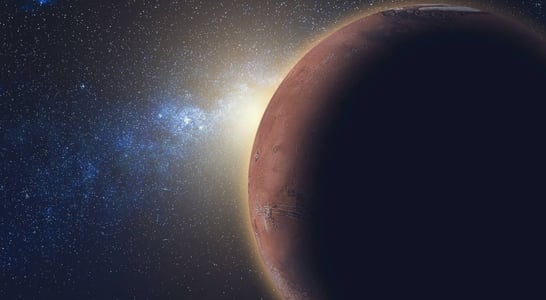
National Petroleum Day
Try going the day without using any petroleum products—from car gas to plastic and more—to see the massive impact petroleum has had on 21st Century living.
Petroleum gets a terribly bad rap most of the time these days, and of course it is true that it has contributed to the pollution of our planet.
However, petroleum is not just used in cars. It is also a key ingredient in other substances we use on an everyday basis, including plastic, detergent, rubber, fertilizers, pesticides, paint, photographic film, makeup, candles and many medicines.
In other words, petroleum is a key part of 21st century life. National Petroleum Day is a chance for people to realize just how big of a part it plays in our lives and celebrate all the things this resource provides.
However, the unfortunate truth is that this resource is a finite one, so National Petroleum Day gives people the opportunity to focus on ways of conserving petroleum and using it wisely.
How to Celebrate National Petroleum Day
Whatever your feelings on using petroleum, the effect it has had on our civilisation is undeniable, and that’s why celebrating National Petroleum Day could prove very educational as well as interesting and entertaining.
Celebrations can range from raising awareness of petroleum and its uses to trying to live a day without petroleum based-products in order to appreciate its value and impact on our lives.
This means not only leaving the car at home, but avoiding mechanised transport, plastics and even frozen foods that may have petroleum wax packaging.
If you haven’t been convinced of how huge a role petroleum plays in all our lives yet, this experiment should make it clear beyond a shadow of a doubt. You could also try holding a petroleum party; during which everyone brings a petroleum-based item.
You’d be surprised how much you can learn about petroleum just from this simple exercise alone!
Whatever you decide to do, be sure to keep in mind that National Petroleum Day is a chance to appreciate this valuable and versatile natural resource and remember that despite its many shortcomings, it has done an enormous amount of good for humanity.
History of National Petroleum Day
Contrary to popular belief that it is a substance humanity has only recently started using because it was needed for vehicles, petroleum has been used in one form or another since ancient times.
According to the renowned Greek historian, Herodotus, petroleum was one of the substances used to build the walls of Babylon. The ancient Persians also used petroleum for lighting purposes, filling their lamps with it, as well as for various medicinal purposes.
In the mid-1800s, Scottish chemist James Young began distilling petroleum, resulting in the production of kerosene as well as a thicker, darker oil that was perfect for lubricating machinery. Today, about 90% of the world’s vehicles are powered using petroleum.
Russia, Saudi Arabia and the United States currently produce the most petroleum in the world; however, significant deposits are found in many other countries, such as Canada and Venezuela.
Because petroleum is a limited, non-renewable energy source, many scientists have devoted their entire careers to developing new technologies that will be able to replace it once it’s gone.
The use of petroleum has also raised many ecological concerns, as the burning of it releases large amounts of pollutants such as sulfer dioxide into the air, not to mention the havoc it can wreak on an ecosystem if an oil spill occurs.
National Petroleum Day FAQs
What unusual role did petroleum play in ancient burial practices?
In ancient Mesopotamia, bitumen, a form of crude petroleum, was used in burial rituals.
It served as an embalming agent to preserve bodies. Archaeologists discovered its use in royal tombs, where it helped seal mummies and prevent decay.
This practical application also had spiritual significance, as it symbolized eternal preservation.
How did petroleum contribute to early Hollywood special effects?
Early Hollywood films relied on petroleum-based products to create dramatic fire scenes.
Pyrotechnicians used kerosene and other petroleum derivatives for controlled burns. This innovation added realism to films long before digital effects became the norm.
Why is petroleum sometimes called “black gold”?
Petroleum earned the nickname “black gold” due to its immense value in shaping economies.
Its wealth-generating potential transformed cities like Houston and Dubai into global powerhouses. The term reflects the way crude oil fueled industrialization and prosperity worldwide.
What is “petroleum rain,” and does it exist?
Petroleum rain is a myth, but it has roots in history. In oil-rich areas, natural oil seeps sometimes mix with water runoff, creating the illusion of oily rain.
This phenomenon sparked stories of oil “falling from the sky,” particularly during the 19th century oil rush.
How did the 1970s oil crisis influence pop culture?
The 1970s oil crisis reshaped pop culture by popularizing fuel-efficient cars.
Movies and music reflected anxieties about gas shortages. Even fashion changed, as polyester (a petroleum-based material) became a trend due to its affordability.
What are some surprising ways people celebrate Petroleum Day?
In Texas, some enthusiasts commemorate Petroleum Day with vintage oil rig tours and themed parades.
In Canada, museums host workshops showcasing oil’s historical uses. Globally, energy companies organize public awareness campaigns about sustainable energy innovations.
How has petroleum inspired art over the centuries?
Artists in ancient Babylon used bitumen to create mosaics and sculptures.
In modern times, crude oil has inspired abstract art and installations. Some contemporary artists even incorporate petroleum-based materials into their work to comment on environmental issues.
Why do some animals get stuck in natural oil seeps?
Natural oil seeps, like those off California’s coast, can trap marine animals.
Birds and mammals often mistake the seeps for safe water sources. Their fur or feathers become coated in oil, impairing movement and insulation.
Historical records show ancient tribes used these seeps as a source of fuel.
What is the link between petroleum and space exploration?
Petroleum played a vital role in developing rocket fuel during the early space race.
Kerosene, a refined oil product, powered many early spacecraft, including the Saturn I and Saturn V rockets. These breakthroughs helped humans explore the moon and beyond.
How did petroleum help launch the plastic revolution?
Petroleum derivatives led to the creation of synthetic plastics in the early 20th century.
Bakelite, the first fully synthetic plastic, revolutionized industries from electronics to fashion. Today, nearly all plastics trace their origins to petroleum chemistry.
Also on ...
View all holidaysNational Banana Lovers Day
Slice them onto cereal or toast, bake them into bread, or just enjoy a potassium-rich banana straight from the peel for a quick, easy, healthy and cheap snack.
National Burger Day
A juicy, flavorful patty nestled between soft, toasted buns, adorned with melted cheese, crispy bacon, and a tangy sauce.
National Tug of War Day
Gather friends and family to create a team, or join a team at a tug-of-war event. Whether two people a side or a thousand, everyone loves a good HEAVE.







